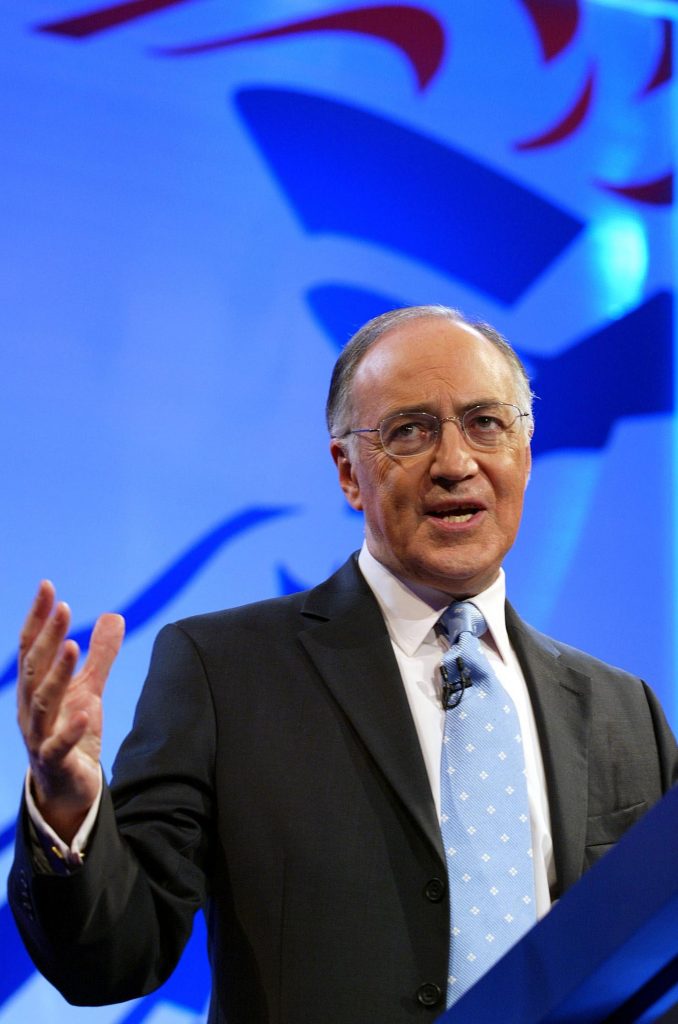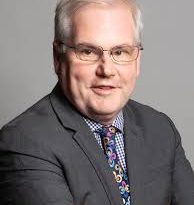Michael Howard – 2004 Speech to the AA Awards Dinner about a Car Being a Necessity
The speech made by Michael Howard, the then Leader of the Opposition, on 25 February 2004.
You won’t be surprised to learn that I think the Government is failing to deliver in all sorts of areas. And that includes transport.
When politicians talk about transport, what they normally mean is trains and buses. It’s vital that we get policies in these areas right, as Britain needs a first-class public transport system. The Government is taking more and more control, tying up the railways in red tape.
For example, any progress on the vital West Coast modernisation project has to be agreed by Virgin, Network Rail, the Strategic Rail Authority, the Office of the Rail Regulator, the Department for Transport, the Treasury, and Number 10. No wonder there’s no time left for anyone to run the trains on time.
But despite the importance of our railways and buses, politicians have to recognise the fact that most of our journeys – almost 90% – are made by car. So I want to rise to the challenge that Brian Shaw has set me, to make motorists feel like customers, not like victims.
The car is at the heart of our transport system and it needs a Government that supports it rather than persecutes it. There’s no point being anti-car. We should all be pro-travel. A properly balanced transport policy would support every kind of transport so that people can get about in the way that suits them best.
A Conservative Government would be the intelligent friend of the motorist. I don’t think the car is evil. I don’t even think it is a necessary evil. I think it is a necessity, which for many people remains a pleasure.
Over the years, the car has become safer, more efficient and less polluting. We should celebrate that. The car enhances the quality of all our lives. It means that we can visit friends or relatives, go shopping, enjoy the countryside. The car gives independence and control to millions of people, and I want to keep spreading that independence and control.
The stereotype of the driver – male and middle aged – has long since disappeared. The fastest-growing groups of car users include the elderly and the disabled. For these groups in particular the car represents a huge advancement of their quality of life.
And of course, the growth in car use over the last few decades reflects the welcome change in our society, with far more women choosing to work and be financially independent. Far more women now own cars and they are vital to them in their busy lives. The car is a necessity, not a luxury.
So Government should do all it can to make driving an enjoyable experience. There isn’t a public transport system in the world that could replace it. It was absurd for John Prescott to claim, when he became transport minister in 1997, that he would have failed as Transport Minister if he did not reduce the number of journeys by car. If he had succeeded, it would have meant a significant diminution in the quality of people’s lives. As it is the number of car journeys has increased by 7 per cent since 1997.
Nothing sums up better the Government’s wrong-headed approach to the car than the whole issue of speed cameras. They are the classic example of a Government determined to intrude to an astonishing degree into people’s everyday lives. They epitomise big Government. And they are yet another example of a Labour stealth tax.
We agree with both the AA and Sir John Stevens, the Head of the Metropolitan Police, who said last week that he doesn’t “approve of the use of speed cameras as moneymaking devices. The proper use for them is as a measure to lower the accident rate” . A survey run by the AA Trust has helped identify our most dangerous roads. Can it be right that there are a third more cameras on our safest roads than on our most dangerous roads? This is the sort of nonsense that we will put right.
Let me tell you that under a Conservative Government there would not be a single speed camera in place just to raise money. If a camera is not contributing to road safety, it will be taken down.
We are also looking at other important areas. We have suggested a review of speed limits, raising the maximum on motorways to 80 miles per hour while reducing the maximum on our most dangerous roads.
In the coming months we will be producing more policies covering road safety, tackling the problem of our most dangerous drivers, helping the emergency services with their use of the roads, and the many other key practical issues that face us. We’ll be working closely with the AA to make sure we get them right.
Our approach to transport policy is based on three key principles:
Governments should give people a genuine choice about the mode of transport they choose.
Long-term transport success will come from steady and predictable investment policies, not from incessant political interference.
The necessary investment levels will require private sector money, and that is as important for roads as it is for railways and buses.
So I welcome Brian’s remarks about how the structures of government have failed our transport system. When he tells me to study the waste and poor performance in the way roads are funded and delivered, I can tell him that we’re already doing that. We’re going to learn from other countries, in all parts of the world, who often seem able to produce the world-class transport infrastructure that we in Britain have a right to expect for ourselves.
And when he says that his remarks should not be seen as a bid for higher public spending I can tell him that I am very grateful indeed. It means I won’t get told off by Oliver Letwin, the Shadow Chancellor.
The Conservatives are committed to giving Britain the best transport system possible. I want to thank the AA, and everyone here, for all the hard work that you do in making sure that we have access to your experience and expertise.
I have had the most wonderful evening. Thank you for inviting me and letting me tell you something about what the Conservatives would do if we were elected.
The policies I have set out are not some academic exercise. They are the means to an end. And the end is to make people’s lives bigger, by making government and its power to meddle smaller.
To make people’s lives easier.
To make people’s lives better.
That’s our objective and we are determined to do everything we can to achieve it.


